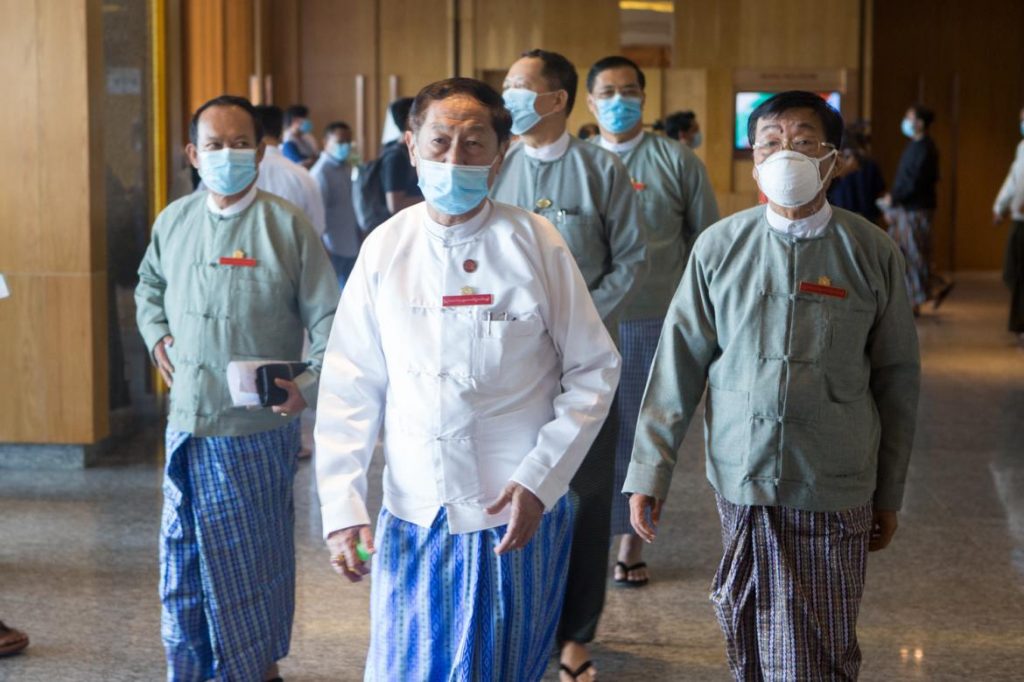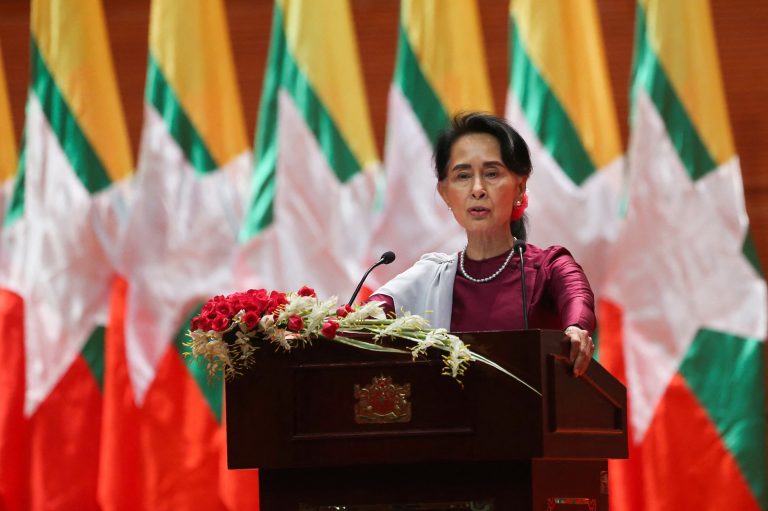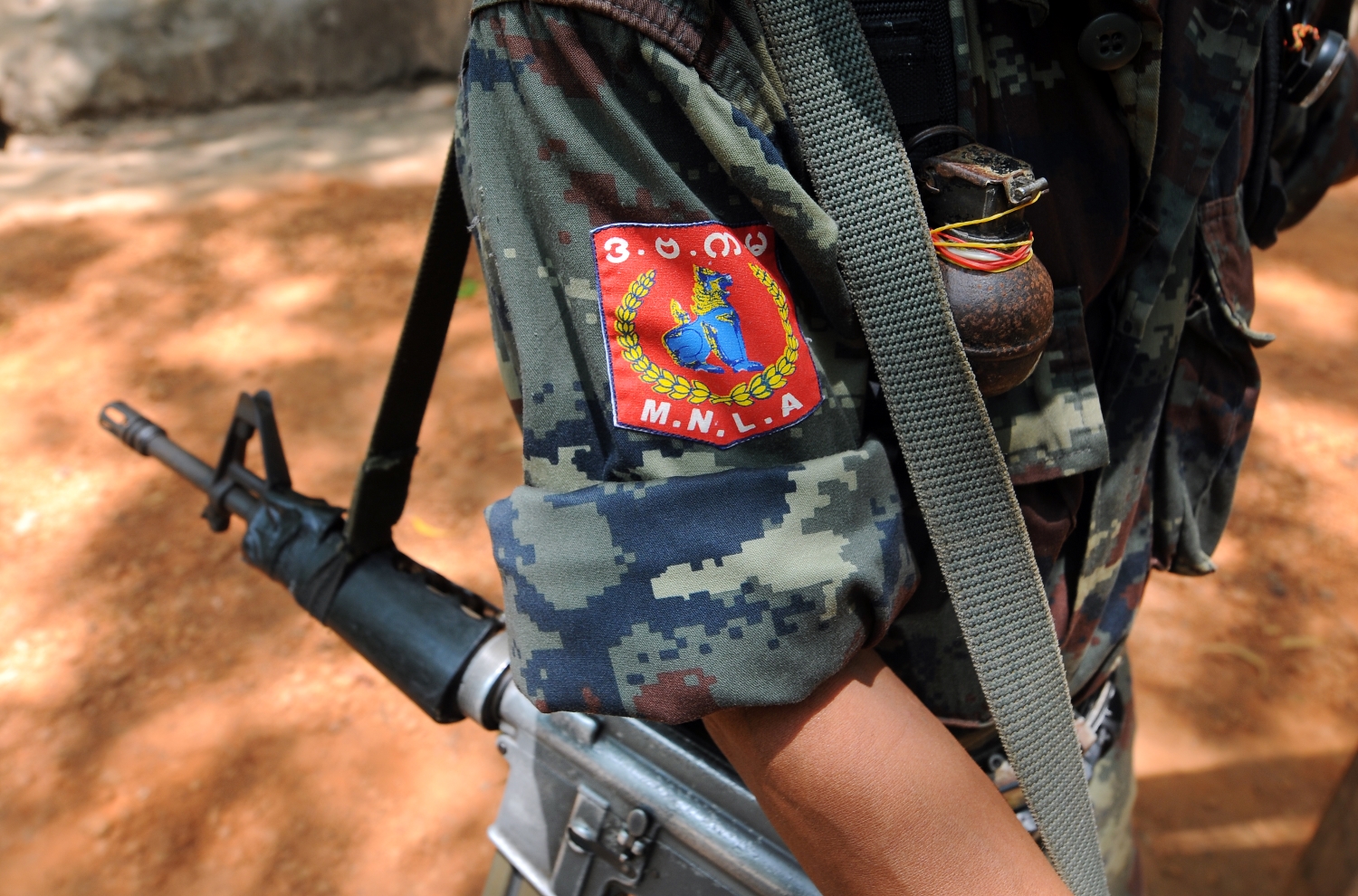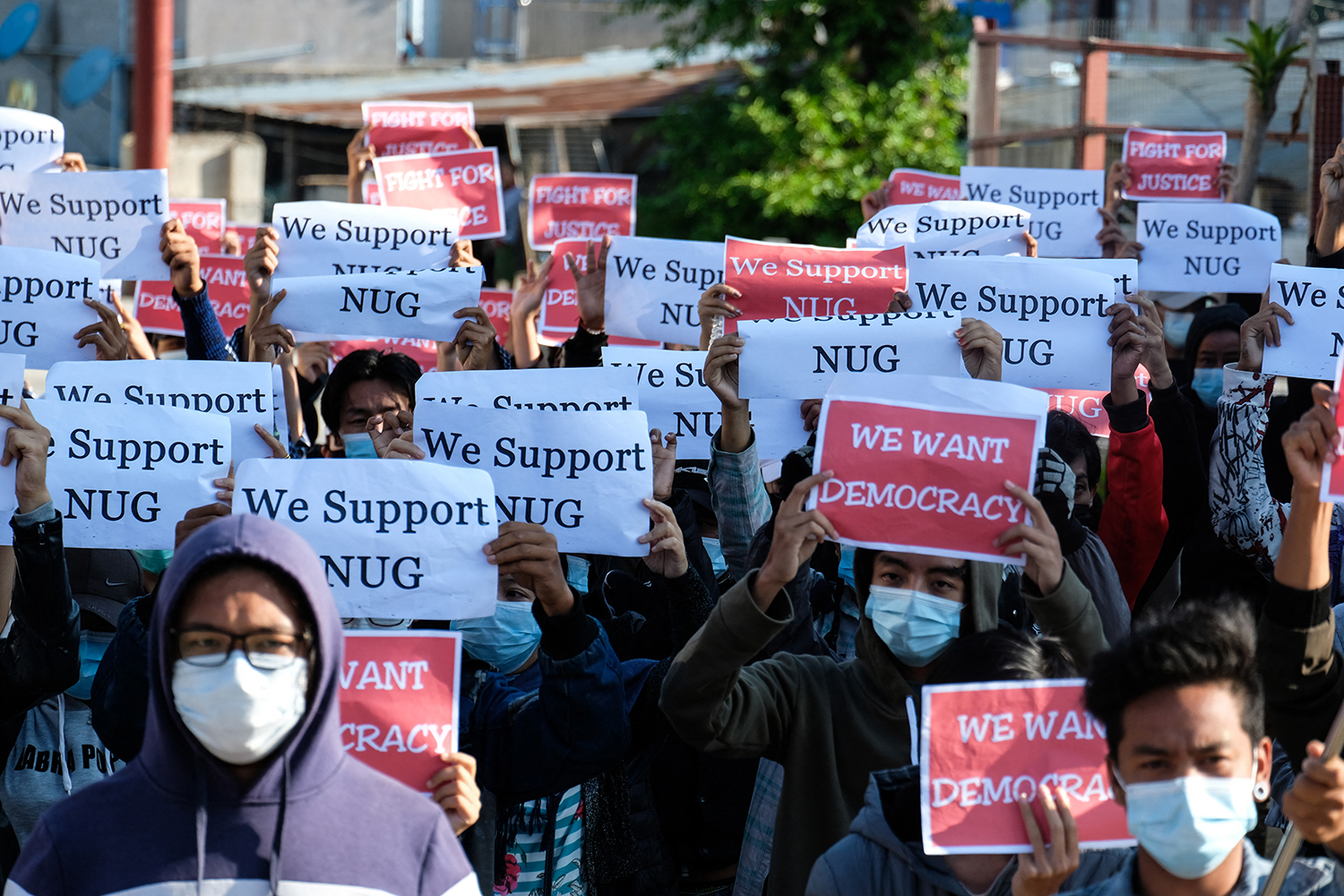By HEIN THAR | FRONTIER
The chairman of the Union Election Commission, U Hla Thein, has admonished a group of opposition political parties for attempting at the last moment to change – and then refusing to sign – a set of guidelines for fair electioneering in the run up to the general election expected in November.
After a heated debate mostly over the use of independence hero General Aung San’s image to attract votes, Hla Thein told the parties the issue should have been resolved during the eight months of drafting the code of conduct.
“[The code] was all done by yourselves; you could have fixed and added what you liked before the draft was finished. Now some parties want to add and remove points even after the code has been printed,” he said, according to an audio recording of the meeting between the UEC and political parties in Yangon on June 27 at the Meliá Hotel, which the press was banned from attending in full.
However, some parties disputed Hla Thein’s spin on their objections to the code, which was based on the document used in the last general election in 2015 that every participant signed. During numerous meetings for the 2020 code, party members agreed on some guidelines and voted on more controversial points.
Dr M Kawn La, chair of the Kachin National Congress, told Frontier that 12 of the 21 parties that participated in the drafting process had voted to ban the use of Aung San’s image in campaigning but the commision had overuled them. The UEC’s argument was that the “nature of the code of conduct … is not to set prohibitions”, said M Kawn Hla, who took part in the drafting process.
At the signing ceremony on the previous day, also at the Meliá, 30 of the 94 registered parties demanded that the code be amended to include a ban on any campaigning that uses the image of Aung San. The general is an iconic national figure – particularly among the Bamar majority – who led the country to independence after World War Two.
The military-backed Union Solidarity and Development Party and 18 other parties refused to sign the code without the proposed amendment, while another 11 parties did not attend the ceremony. They say the use of Aung San’s image would give the ruling National League for Democracy party an unfair advantage because his daughter is NLD leader Daw Aung San Suu Kyi.
Hla Thein responded that all parties were free to use the image. He asked if the parties thought it was “fair to complain” now when they did not complain during the 2010 elections, which are widely criticised for being rigged in favour of the USDP.
“It would be fair competition if all parties do not use General Aung San’s picture because Aung San was a national leader,” USDP spokesperson U Nandar Hla Myint told media on June 26. “He is not the possession of one party.”

Parties calling to amend the code said Hla Thein’s comments were unfair and that the UEC was biased towards the NLD.
“If the UEC is giving favour only to the ruling party, it is unfair for the small parties,” U Htay Kyaw, chairman of Myanmar People’s Democratic Party, told Frontier on June 26.
“They obviously favour the NLD,’’ Arakan League for Democracy secretary U Myo Kyaw said of the UEC on June 27.
The commissioners of the UEC, including chairman Hla Thein, are appointed by the president for a term that coincides with that of the elected government. Critics say this robs the commission of independence; and under the previous, USDP-led government, the opposition NLD regularly accused the UEC of pro-USDP bias.
But the UEC has dismissed allegations of bias, with the spokesperson U Myint Naing telling media on June 27 that the commission had been impartial during a day of debate that they allowed to run until 7pm, two hours over the scheduled time.
“Our chairman told the parties not to worry about the public doubting the UEC. The parties should just focus on getting people to believe in them,” said Myint Naing, who also sits on the UEC’s 15-strong committee.
While the code is not legally binding, it does lay out a consensus of what is deemed ethical by the competing parties, with provisions against hate speech, threats and intimidation.
On June 16 the USDP and 29 other parties sent a letter to the UEC complaining about the use of Aung San’s image as well as the NLD’s appointment of so-called town elders to aid the candidate selection process. The term is misleading and frames the elder nominees as independent community leaders when they are actually NLD loyalists, argue the parties.
“[The UEC] said using the term ‘town elder’ is not a problem, and they also said all parties can use General Aung San pictures,” said Nandar Hla Myint. “The election must not only be free, but must also be fair. If the UEC does not listen to other parties, most parties and the people will lose trust in the UEC.”
The letter also asked the UEC to clarify aspects of the electoral process including advance votes, the number of polling stations and the vote counting system.
Media also asked Myint Naing for the election date, which the UEC has not yet announced, and how the elections will play out in northern Rakhine State, where conflict between the Arakan Army and the Tatmadaw has jeopardised the possibility of voting in large areas of the state. However, he said he would answer those questions at a later, unspecified date.







